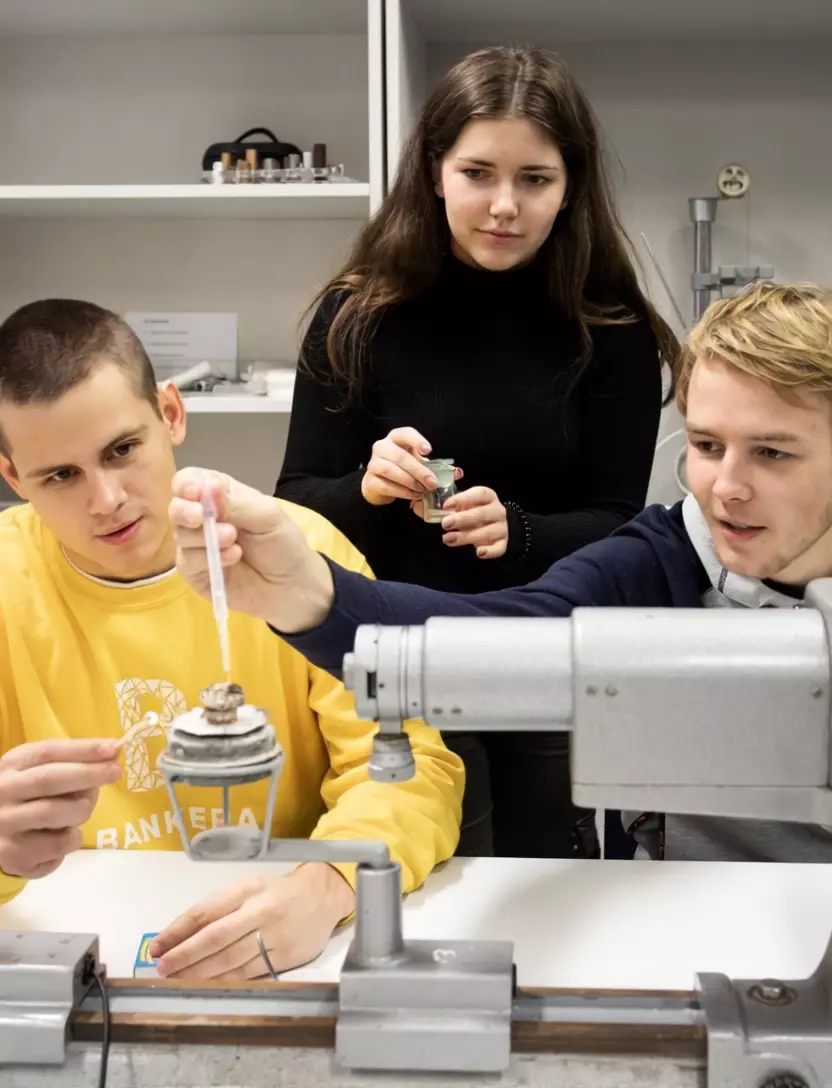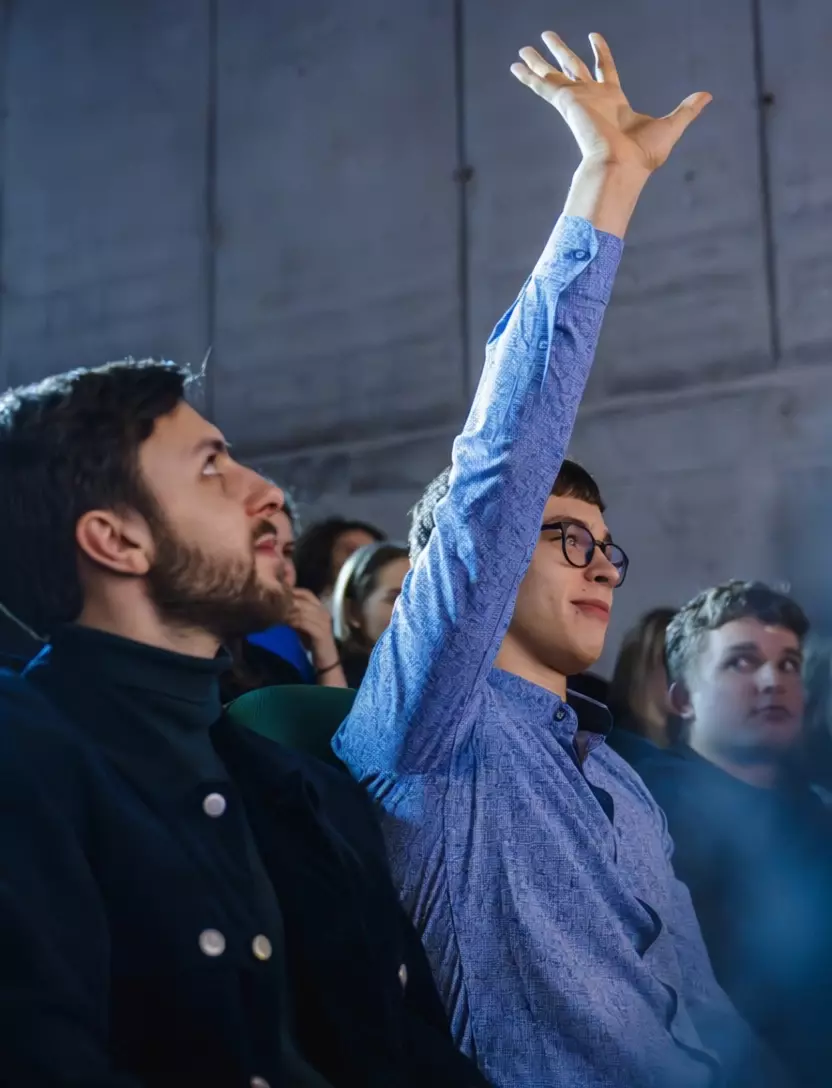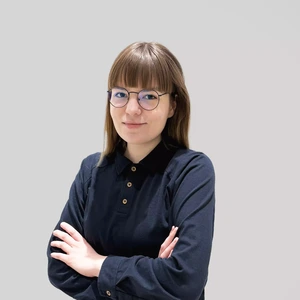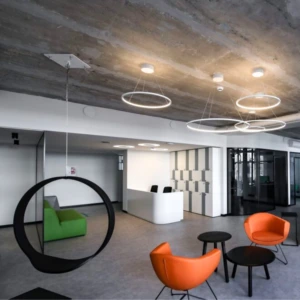The programme is only conducted in Lithuanian language. Entry requirements for this particular programme can be found in the programme description provided in Lithuanian language.
in Lithuanian
Aesthetics and functionality in one
This programme combines engineering and design to create sustainable, user-centred products. Students learn how to design, visualise and optimise products using modern technologies such as 3D printing, artificial intelligence and virtual reality. Industrial Design Engineering graduates become creative engineers and designers, ready to work in a wide range of industrial and creative sectors.

Art and engineering lecturers from different Lithuanian and international higher education institutions work in this interdisciplinary study programme. Therefore, you will not only learn how to develop ideas for user-focused sustainable product design but also how to implement them.

At the M-Lab or Circular Economy workshops, you will gain hands-on experience with technologies such as 3D printing, artificial intelligence, plastic moulding, and recycling.

During your studies, you will experience a dynamic and value-creating learning process that combines theoretical knowledge with real business cases and practical challenges. You will not only gain relevant skills but also learn how to apply them to solve real problems and develop innovative solutions.

You will have the opportunity to personalise your studies by choosing among levelling courses, general university modules, project topics or an additional study module.
Learn how to develop innovative solutions for products such as smart devices, wearable health technologies, biomechanically responsive sports equipment, and renewable energy-powered products. You will gain experience using advanced technologies like 3D printing and artificial intelligence in product development, as well as integrating sustainable materials and technologies.
This knowledge will prepare you to become a highly sought-after professional in the field of industrial design engineering:
Develops creative engineering projects from anywhere in the world, using modern design tools, sustainable materials and digital tools for product prototyping.
Designs, visualises, and prototypes products to meet the needs of users and the environment. Highly valued and in demand, particularly in start-up companies.
Designs customised products tailored to individual behavioural and psychological needs, including medical and sports devices developed using a person’s anthropometric data.
| Module name | Credits | Method of organisation |
|---|
| Engineering Graphics | 6 | On-campus learning |
| Information Technologies for Engineers | 6 | On-campus learning |
| Introduction to Speciality | 6 | On-campus learning |
| Mathematics 1 | 6 | On-campus learning |
| Media Philosophy | 6 | Blended learning |
| Sustainable Development | 6 | On-campus learning |
| Module name | Credits | Method of organisation |
|---|
| Design Fundamentals | 6 | On-campus learning |
| Engineering Mechanics | 6 | On-campus learning |
| Mathematics 2 | 6 | On-campus learning |
| Physics 1 | 6 | On-campus learning |
| Academic and Technical Communication in English (Level C1) | 6 | On-campus learning |
| Academic and Technical Communication in French (Level C1) | 6 | On-campus learning |
| Academic and Technical Communication in German (Level C1) | 6 | On-campus learning |
| Module name | Credits | Method of organisation |
|---|
| Basics of Three-Dimensional Design | 9 | On-campus learning |
| Computer-Aided Design | 3 | On-campus learning |
| Sketching fundamentals | 6 | On-campus learning |
| Theory of Probability and Statistics | 6 | On-campus learning |
| 3D Visualization and Rendering Fundamentals | 6 | On-campus learning |
| Module name | Credits | Method of organisation |
|---|
| Applied Materials Science | 9 | On-campus learning |
| Culture of Modern Design | 6 | On-campus learning |
| Fundamentals of Digital Manufacturing and Mechatronics | 6 | On-campus learning |
| Fundamentals of Mechanical Systems Design | 6 | On-campus learning |
| Methods of Prototyping | 3 | On-campus learning |
| Module name | Credits | Method of organisation |
|---|
| Bionics and Biomimicry in Design | 6 | On-campus learning |
| Ergonomics and Human Factors | 3 | On-campus learning |
| Product Design | 6 | On-campus learning |
| Semester Project | 6 | On-campus learning |
| Technologies for Industrial Design | 9 | On-campus learning |
| Module name | Credits | Method of organisation |
|---|
| Design Based on Artificial Intelligence Solutions | 3 | On-campus learning |
| Product Design | 6 | On-campus learning |
| Product Development Project | 12 | On-campus learning |
| Project Management | 6 | On-campus learning |
| Technical Creativity and Intellectual Property | 3 | On-campus learning |
| Module name | Credits | Method of organisation |
|---|
| Design Workshop | 6 | On-campus learning |
| Engineering Analysis and Optimal Design | 6 | On-campus learning |
| Product Design Studio Project | 9 | On-campus learning |
| Three-dimensional Animation | 3 | On-campus learning |
| Optional Subjects 2026 | 6 |
| Module name | Credits | Method of organisation |
|---|
| Bachelor’s Degree Final Project | 15 | On-campus learning |
| Professional Internship | 15 | On-campus learning |
The programme is only conducted in Lithuanian language. Entry requirements for this particular programme can be found in the programme description provided in Lithuanian language.
in Lithuanian

This study programme combines technical knowledge and aesthetics. It also allows you to create innovative solutions and gives you the freedom to experiment. Here, we not only analyse engineering problems, but also look for original, functional and visually appealing design solutions. All the skills I acquired during my studies helped me to enter the job market faster and find a job that matched my education – I started working in my third year.

Industrial Design Engineering balances engineering science and design application. The knowledge gained during the studies provided a solid foundation for the design of functional, visually appealing and sustainable products. This study programme is aimed at future professionals who want to approach tasks from the perspective of professionals from different fields.

KTU is known for its strong links with industry, innovation promotion and research activities. Graduates are characterised by their technical ability, analytical thinking, problem-solving skills and self-motivation. Today, there is a growing demand for engineers, not only in Lithuania but also in all European countries, making it easy for engineers to find well-paid jobs.
Students on this programme should note that all coursework, lectures and assessments are conducted entirely in Lithuanian.
KTU students have access to Massive Open Online Courses (MOOC) in mathematics and physics. These are designed for those who wish to improve their knowledge of these subjects through independent study. In addition, the University has student volunteers who provide guidance and help to improve your knowledge in a particular field (mathematics, computer science, physics, chemistry or other fields). Therefore, lack of knowledge is not a barrier to studying this programme.
After graduating from the KTU Industrial Design Engineering study programme, graduates can work in companies in the engineering industry sector (furniture, lighting, advertising and commercial equipment, plastic and metal products), in product development, design, design and research departments, in projects and in the development of new products. You could also set up your own business or work as a freelance product development specialist.

Talk to us, study with us:
K. Donelaičio St. 73, LT-44249 Kaunas
phone +370 679 44 555
email studijos@ktu.lt
Faculty of Mechanical Engineering and Design
XII Chamber
Studentų St. 56, LT-51424 Kaunas
email midf@ktu.lt
 virtual tour
virtual tour